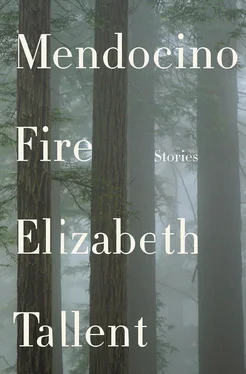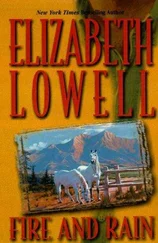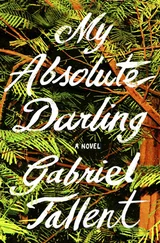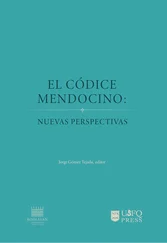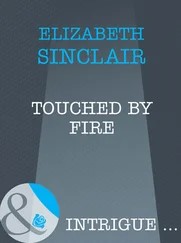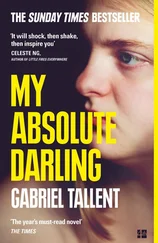4
It continues, the emergency clarity of this falling-snow world, the way the snow knows about her dying father and roots for her to get there on time, arrows directing her to the on-ramp, signs that blaze up through falling snow, a conviction of rightness, the highway remembered not from childhood but from adult visits, summers when she had flown out to spend a week, a week turning out to be too long, the burdensomeness of her presence dawning on her father and her mother and on her, too, as well as hatred of herself for not being their irresistible guest, the daughter they would hate to see leave, but — in her mother’s telling she was born repellent, sporting a full head of straight black fur, her skin crisscrossed with furious scratches she had inflicted on herself in utero, if her mother’s account is to be believed, and if her young mother turned from her with instant loathing there was nothing the nurses could do, they could only bring the baby back again and say Here’s your baby, don’t you want to hold her , and her mother couldn’t stand to look and had no feeling for that baby except hatred that she was being thrust at her, and the nurses tried again and the young mother said no again, and at last the nurses slicked the black hair into a Kewpie doll spit curl and tied a bow on it and carried her in and the bow did the trick and her mother took her, and that was the story her mother told her and who is to blame in that story? if the young mother didn’t feel what young mothers ought to feel whose fault is that? and once when she was eleven she asked where was Daddy for those two or three days when the nurses could not get you to take me, and was told, well, fathers didn’t get involved in things like that then, not in those days, it was different, fathers were not expected to, and he was at work, he had to go back to work, and what she’d really wanted to ask was did it bother him that you refused to take me or even look at me, did that concern him, wanting him to have been on her side. If it’s any consolation, she can tell herself it could easily be true, he could have wanted to come into the nursery where the bassinets were lined up and lifted her baby self out and held her, if fathers did that then, but fathers didn’t, fathers then looked through glass.
Snow falling, her ticking-clock concentration pierced by appreciation of the fact that she’s in over her head, not skilled enough for a night like this, but what can she do except drive . A motionless mass up ahead casts a beam the wrong way, across her lane, what she thought was her lane. Then a fresh S-curve in the snow terminates in the long, dim, intricate underside of an overturned semi, the trucker stamping his feet while he justifies himself to his cell phone, lifting an arm as she slows, not to halt her but, it turns out, in thanks for her being kind enough to slow to see if she can help, or at least that’s how she construes it, his wave and the tilt of his head conveying Sure, keep driving. You might make it. Signaling, too: Good luck. Or so she interprets it, and how desperate she must be, how fucked and despairing, for that quick sideways tip of his head to mean so much — for her to derive from that stranger’s gesture the confidence she needs to continue driving, how ridiculous; yet it changes her mood to have had her striving recognized, her desperation saluted and encouraged, and who cares if it’s a stranger who does that for you? Angels we have heard on high plays on her mind’s radio. Sweetly singing o’er the —what? In the cinderblock, abstract-crucifix interior of the Methodist church of her childhood she and her sister share a hymnal, singing o’er the—, o’er the— . She skips ahead to the line the two sisters can barely sing without giggling: Shepherds, why this jubilee? She repeats it until the rhyme arrives: Why your joyous strains prolong? What the gladsome tidings be— Skips further to Come, adore on bended knee , and she has it whole except for whatever it is the angels are singing o’er, the two sisters in the backseat of the car on the drive home teasing their stoic little brother, Shepherd, why this jubilee? until, crushed by their ruthless repetition of the baffling question, he shouts Because! After that, a lonely hour with no sign of another vehicle, no one else out in this.
Far down the headlights, snow flings and agitates in an opaque onslaught, but closer, maybe only a yard or so in front of the SUV, there’s some kind of boundary where snow detaches itself from the prevailing chaos, seeming almost, fascinatingly, to freeze in a vortex before zipping at her in extreme close focus, detailed down to individual flakes — a trick of vision, thrilling enough that she has to remind herself to look away from the borderline where the snow changes, back out to the farthest reach of the lights nudging into whiteness, the core of the halogens steadily dazzling, probing deeper but never gaining, not giving her much to go on — and it’s tedious staring steadily at those few yards of lit world, which might as well be the same yards over and over again, and there it is, plains. Sweetly singing o’er the plains. For some reason the acuity of her father’s glare two years ago comes back. Her own eyes in the rearview — a fraction of an instant’s assessment — are nowhere close to his in intensity. Nonetheless he hated her holding his gaze. Don’t you look at me like that was a thing he said fairly often. Not from boldness, but out of the need to understand him— the unrelenting need of her childhood — she wanted to keep looking right up until she transgressed, to look at him as long as she safely could, but the line was never where she thought it was. When she tilts her head, the bobble on top of the hat adds its mote of weight to the tilt. If she didn’t know this highway runs through flat fields, would she still sense, through the fast-falling snow, the vacancy stretching away on every side? How many die of exposure every winter in this county? Not only the homeless, not just drunks, but farmers who go astray between house and barn, whose tracks instantly fill in, according to her father at the dinner table of her childhood, and he was moved almost to tears by a farmer’s no longer being able to make out the lights of his house, and none of them knew what to do for him, or how to care more, as it seemed they should, for whoever had fallen asleep in snow.
From the far side of the snowfield that is the median, blades of light oar intermittently, the snowplow outlandish as a satellite eking out its transit.
There was a calculation to what the hospice worker had said, a methodically staged breaking of bad news. She had explained who she was and that she’d been staying in her parents’ house for two weeks; then the kind of cancer, the multiplicity of tumors and their aggressiveness, the gamut of treatments her father has been through; and then that nothing more could be done, medically, as her father was down to his last twenty-four hours and the palliative care was straightforward enough to be handled by the family; and then she had said, “He would want you to come.” Would has to mean he didn’t definitely say, but he was not yet, at that point, unable to speak, and he could have said Tell her to come , but someone gave the hospice worker her number and instructed her to call, and that someone, who could only be her mother, or possibly her sister, but who almost certainly is not her reticent, laconic brother, is likely to have a realistic grasp of her father’s wishes, and could have been moved to request that the hospice worker make the call by some pained, inarticulate gesture or even expression of her father’s that could be interpreted as the desire for the absent child to appear. Whoever this hospice worker is, she’s kind. Not detached, as might be expected of a person who often witnesses death, but speaking knowledgeably of the dying man’s temperament and wishes — how did she gather all that? When she hadn’t responded right away the hospice worker had said, “I know he wants you to come.” I know. How long has it taken for the hospice worker to become so proprietary? Not long. But it has always been like that with her father. He just somehow matters to people. He’s one of those individuals who seem, right away, significant, whose good opinion even strangers solicit, and however it happened he had sufficiently endeared himself to the hospice worker that she took a moment to regale his daughter with his quirks as a patient, to say Your father likes this , about some measure of extra attentiveness taken in his care. What was it? A detail was confided to her and she’s forgotten it. But the hospice worker had figured out some preference of her father’s, and had gone to the trouble of making sure whatever it was was done the way he wanted, and she’s right about that, the hospice worker, nothing gratifies him more than prevailing over customary routines by mischievous insistence on a whim. Still, the possibility exists that the hospice worker was inadvertently misrepresenting her father’s wishes in regard to her. This could happen all too easily. Theirs is not a family whose wounds are obvious. As individuals and as a family they’re more oblique in their manner, harder to read, than most people are, and on top of that, of course, they dissemble. They want to look like a family that works, because any other kind of family — a family that really could shatter, in which sister and brother and daughter or even mother , even father , do not name reliable or lifelong presences — is a source of shame, and if that’s your family, you keep it to yourself, and all of you, for once in genuine accord, keep it to yourselves.
Читать дальше
